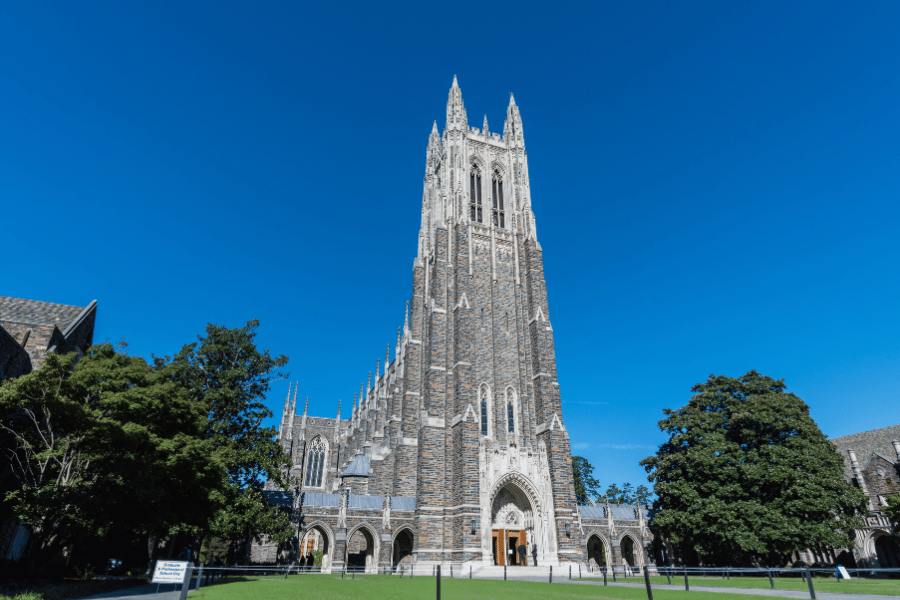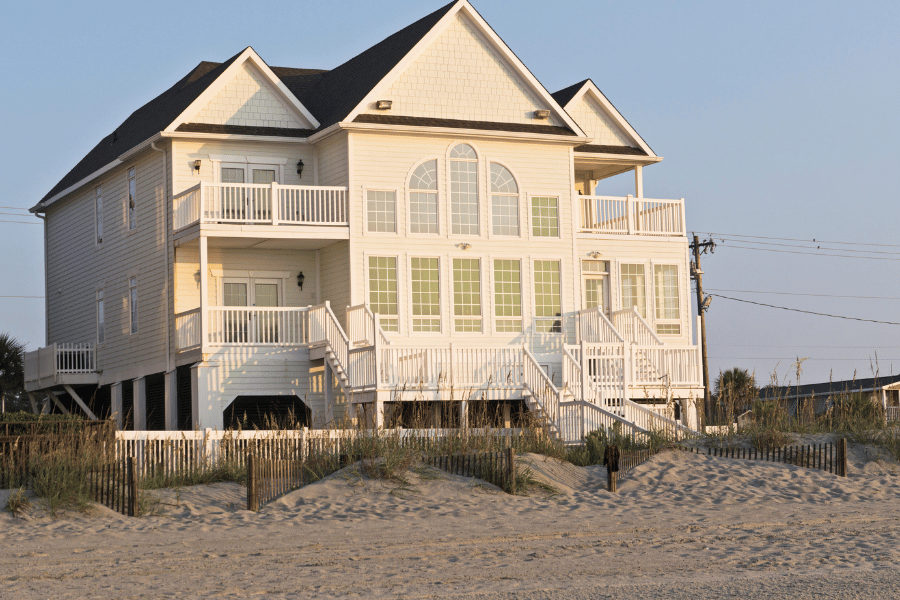Living in NC Vs. SC
Are you trying to decide where to move between North Carolina and South Carolina? Here is what you need to know about each state to make the best decision!
North Carolina and South Carolina are popular states in the Southeast that many people want to call home. As part of the Carolinas region, both states offer Southern charm, mild climates, and growing economies, but each has unique advantages.
North Carolina is bigger than South Carolina and is home to larger cities. On the other hand, South Carolina offers warmer weather year-round and is beloved for its communities near the coast and historical significance.
If you are trying to decide where to move between the two states, learning about the advantages and disadvantages of each will provide critical insight so that you can choose the state that might be the best fit for you.
Check out these differences and similarities between North Carolina and South Carolina
1. Cost of Living
When it comes to affordability, both states offer significant value compared to the national average, but South Carolina holds a slight edge.
The cost of living in North Carolina is generally considered affordable and is similar to the national average. However, North Carolina is also home to popular, overpriced metropolitan areas, including Raleigh, Charlotte, Durham, Asheville, Winston-Salem, and Greensboro, which make the state slightly more expensive than South Carolina.
According to MERIC, data collected in 2025 ranking the least and most affordable places to live show that North Carolina has the 27th lowest cost of living in the country, with South Carolina ranking at number 20.
With the current cost of living in North Carolina, single adults need about $93,766 to live comfortably, and families of four need $210,746.
On the other hand, the cost of living in South Carolina is lower than in North Carolina, but it varies depending on the city or region. South Carolina residents can expect to spend less than North Carolina residents due to overall lower taxes and more affordable housing options.
The cost of living in South Carolina is 9% lower than the national average; however, much like in North Carolina, the cost of living will vary depending on the city and region.
Even though the cost of living is generally less expensive in South Carolina than in North Carolina, the state is known for having higher utility costs. Much of this higher cost comes from electricity usage. On average, South Carolina residents spend about $418.23 a month on utilities alone, $138.16 for electricity use.
Here is a side-by-side comparison of typical cost of living expenses in Columbia, South Carolina, vs. Raleigh, North Carolina:
Columbia, SC
| Cost of Living Expense | Average Cost |
| Median Rent | $1,088/month |
| Energy Bill | $234.78/month |
| Doctor's Visit | $119.40 |
| Dentist Visit | $97.46 |
| Veterinary Visit | $68.77 |
*Data Sourced From PayScale.
Raleigh, NC
| Cost of Living Expense | Average Cost |
| Median Rent | $1,425/month |
| Energy Bill | $186.25/month |
| Doctor's Visit | $164.92 |
| Dentist Visit | $134.62 |
| Veterinary Visit | $59.89 |
*Data Sourced From PayScale.

2. Housing Options
Both North Carolina and South Carolina have beautiful and affordable housing options compared to other states in the region. However, keep in mind that popular urban areas in both states will have higher housing prices than surrounding areas.
The median sale price of a home in Raleigh, North Carolina, the state capital, is $768,311, but there are many affordable neighborhoods. In comparison, the median home price in Columbia, South Carolina, is $270,000, and in Greenville, South Carolina, it is around $520,000.
When considering housing options, think about the area's overall housing market, real estate taxes, and income requirements to buy a home. Both states have seen increasing housing prices over the last year due to limited inventory and increased demand.
North Carolina and South Carolina are increasing in popularity and have become a top destination for Americans, leading to lots of new construction throughout both states.
Housing Options in NC:
- Urban lofts and condos in Charlotte and Raleigh
- Suburban family homes in Wake County and Mecklenburg County
- Mountain retreats in Asheville and the Blue Ridge
- Coastal properties in the Outer Banks
- Historic homes in Winston-Salem and Greensboro
Housing Options in SC:
- Historic Charleston single houses and antebellum mansions
- Beachfront condos in Myrtle Beach and Hilton Head
- Golf course communities in Greenville and Spartanburg
- Lake houses on Lake Murray and Lake Keowee
- Affordable starter homes in Columbia and Rock Hill

3. Job Market
When it comes to job opportunities, North Carolina is the clear winner. Research Triangle Park, located between Raleigh, Durham, and Chapel Hill, is a 7,000-acre research park home to hundreds of science and technology companies, government agencies, and start-ups.
Companies like IBM, Cisco, SAS, and Lenovo are in RTP. While the Raleigh area is known as a huge technology and research hub, Charlotte is a large banking center home to Bank of America and Wells Fargo East Corporation.
The economy of South Carolina revolves around manufacturing, which contributed $37.5 billion to South Carolina's GDP in 2024. The largest BMW car manufacturing plant is in Spartanburg and employs over 11,000 people at its 8.5 million-square-foot campus.
Charleston and Greenville, South Carolina, are key cities for job growth in the state, specifically in the automotive and aerospace industries. Boeing has an airplane assembly facility in North Charleston, which is the home of the 787 Dreamliner.
North Carolina offers more high-tech and financial sector opportunities, while South Carolina excels in manufacturing and has lower business costs. As you search for a new home, ensure the area has a flourishing job market and a strong economy.
4. Climate
Both North Carolina and South Carolina offer relatively mild climates, but North Carolina generally offers more seasonal variations with cooler temperatures.
The mountain region in North Carolina experiences frequent snow in the winter months, which is common in cities such as Asheville and Boone. Many ski resorts are located here for this reason.
South Carolina, on the other hand, has warmer weather year-round due to its subtropical climate. As the 8th hottest state in the country, cities such as Charleston experience very humid and hot summers and mild winters.
As Southeastern states, both North Carolina and South Carolina can be impacted by hurricanes, which is essential to consider before moving. While the threat of a hurricane does not happen every season, North Carolina has been hit by more hurricanes than South Carolina since the coastline extends further into the Atlantic Ocean.
5. Education
Regarding education, both North Carolina and South Carolina have robust public school systems and several reputable universities and colleges. Both states prioritize education and offer excellent options for families and students.
While both states offer a wide range of educational opportunities, South Carolina has a lower ranking in education quality, which could be a concern for families moving with school-aged children.
With higher test scores and graduation rates, North Carolina has a slightly higher education rating. The Wake County Public School System is the largest public school system in North Carolina and is a top-performing school district in the country.
Offering many higher education opportunities, some of the best colleges and universities in North Carolina include Duke University, North Carolina State University, and the University of North Carolina at Chapel Hill. South Carolina is home to the University of South Carolina, Clemson University, and the College of Charleston.
When comparing both states, North Carolina is renowned for its strong public university system and growing reputation for K-12 education improvements. On the other hand, South Carolina has made significant investments in education reform and offers quality options at all levels.

6. Healthcare
Offering different rankings for healthcare quality and costs, both North Carolina and South Carolina have been ranked among the worst states for healthcare.
North Carolina is home to many amazing hospitals, including Duke University Hospital, recognized as one of the top medical centers in the country. However, the state is recognized as 10th worst state for healthcare access and costs. North Carolina residents with single health insurance coverage through an employer pay the 8th highest premium in the country.
South Carolina is ranked 36 out of 50 for healthcare quality. The healthcare system in South Carolina faces many challenges, particularly regarding healthcare access for the low-income population and a high percentage of South Carolina residents without health insurance.
In the bottom quartile for life expectancy, South Carolina has the fifth-highest infant mortality rate and the seventh-highest stroke mortality rate.
7. Crime Rates and Safety
Safety is important during a move, especially for families looking for low crime rates and good neighborhoods. North Carolina generally has lower crimes in suburban areas, while larger cities have varying degrees of safety depending on the neighborhood.
Your chances of becoming a victim of violent crime in North Carolina are one in 256, while your chance of becoming a victim of property crime is one in 48. Overall, Raleigh is a safe place to call home, but there might be increased or decreased risk depending on where you are in the city.
South Carolina is also known for its safety, as many cities offer relatively low crime rates. However, make sure to do research before moving, as some suburban areas and neighborhoods might have higher crime rates.
Your chances of becoming a victim of violent crime in South Carolina are one in 212, while your chance of becoming a victim of property crime is one in 46. North Carolina generally offers lower crime rates, particularly in the Research Triangle and suburban areas.

8. Taxes
Taxes in North Carolina are slightly higher than in South Carolina. According to a new study by WalletHub, the annual state and local taxes for a median North Carolina household are $7,902, while in South Carolina, they are $6,876.
South Carolina ranks 9th for the lowest tax rates in the country, and North Carolina ranks 18th compared to other states. Both states do not have an estate tax or an inheritance tax.
Here is how taxes compare in North Carolina and South Carolina:
North Carolina Tax Rates
| Tax Type | Tax Rate |
| Individual Income Tax | 4.50% |
| State Sales Tax | 4.75% |
| Combined State and Local Sales Tax | 7.00% |
| Property Tax | 0.63% |
| Per Gallon Gas Tax | 40.65 cents |
*Data Sourced From Tax Foundation.
South Carolina Tax Rates
| Tax Type | Tax Rate |
| Individual Income Tax | 0.00% to 6.40% |
| State Sales Tax | 6.00% |
| Combined State and Local Sales Tax | 7.50% |
| Property Tax | 0.46% |
| Per Gallon Gas Tax | 28.75 cents |
*Data Sourced From Tax Foundation.
9. Community and Culture
When moving, community and culture are essential to consider since they significantly make a place feel like home. Known for its southern hospitality and charm, North Carolina is home to unique arts and cultural activities through its many museums, film screenings, and concerts.
South Carolina is a historic state with many community events and activities dedicated to the literary, visual, and performing arts. South Carolina is home to vibrant cultural districts with over 300 festivals and events throughout the year that celebrate its heritage through food and art.
NC Cultural Highlights:
- Rich music heritage (bluegrass, jazz, hip-hop)
- Thriving arts scene in Asheville and Chapel Hill
- Strong sports culture (ACC basketball, NASCAR)
- Growing food and brewery scene
- Outdoor recreation communities
SC Cultural Highlights:
- Historic preservation (Charleston, Beaufort)
- Lowcountry cuisine and culinary traditions
- Strong military heritage and communities
- Golf and resort culture
- Traditional Southern festivals and events
10. Lifestyle
Both North Carolina and South Carolina offer beautiful natural scenery and varying lifestyles, which can be experienced through activities and fun things to do. A pro for both states: North Carolina provides more diverse natural scenery, but South Carolina may be the better option for year-round beach vacations due to its warmer weather.
North Carolina is home to the Great Smoky Mountains National Park and spectacular beaches, including the Outer Banks, which are fun to explore year-round. South Carolina, on the other hand, is home to the Blue Ridge Mountains and many family-friendly beaches, including the famous Myrtle Beach and Hilton Head Island.
Outdoor Activities in NC:
- Blue Ridge Parkway and Great Smoky Mountains
- Outer Banks beaches and water sports
- World-class hiking, fishing, and hunting
- Four-season recreational opportunities
Outdoor Activites in SC:
- Atlantic coastline with beautiful beaches
- Excellent golf courses and resort communities
- Lake recreation and water sports
- Mild climate for year-round outdoor activities

Methodology
We used data and information from many reliable sources to compare life between North Carolina and South Carolina. The following are a few sources we used to gather most of our information:
FAQs
Is North Carolina or South Carolina better to live in?
Both states offer different things for different people and lifestyles. Still, they both have strong economies, plenty of job opportunities, affordable living costs, beautiful homes for sale, and friendly communities with plenty of southern charm and hospitality.
What is negative about living in South Carolina?
South Carolina offers many benefits, but some things that people may think are negative and could lead to someone not moving to South Carolina are the higher-than-average heat and humidity, the risk of hurricanes, and the state's overall low ranking of healthcare and education quality.
What is negative about living in North Carolina?
North Carolina has many pros, but some cons that could lead to someone not moving to North Carolina include the higher-than-average humidity, the increased risk of hurricanes, and the lack of public transportation options.
Moving to North Carolina Vs. South Carolina - Final Thoughts
Both North Carolina and South Carolina offer exceptional opportunities for homebuyers, each with unique advantages. The choice ultimately depends on your personal priorities, career goals, and lifestyle preferences.
Choose North Carolina if you:
- Want access to major tech and finance job opportunities
- Prefer geographic diversity (mountains, cities, coast)
- Value top-tier healthcare and education options
- Enjoy four-season weather variations
- Want a more diverse, internationally-influenced culture
Choose South Carolina if you:
- Prioritize lower overall living costs
- Love consistent warm weather and beach access
- Want favorable tax treatment for retirement
- Prefer traditional Southern culture and charm
- Are looking for affordable golf and resort communities
Once you have weighed the pros and cons between both states and decided where you want to live, contact the experts at Raleigh Realty to find your dream home.




